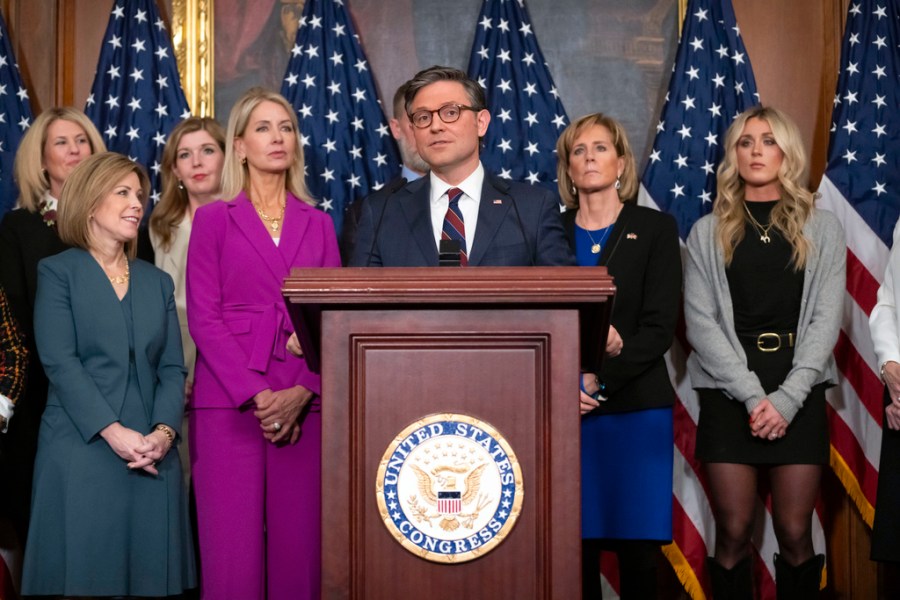
I recounted last week the brutal battle to elect a House Speaker on the opening day of the 119th Congress (Jan. 3, 2025). What is often overlooked on that same day is the House’s adoption of its own rules, which often include hints as to the two parties’ policy priorities for the new Congress.
You can call it a “preview of coming attractions,” but, put more simply, it is a clever way of trading opening salvos over the policy debates that will unfold over the ensuing 24 months. The Republican majority’s resolution for adopting House rules not only contained direct changes to its standing procedures, but other indirect institutional alterations ranging from budgetary processes to remote committee hearings and voting, to mandatory anti-harassment and anti-discrimination polices for House offices.
However, in addition to those in-House additions and alterations, the resolution makes in order for the future consideration of 12 policy-related bills that will be brought up as privileged, debatable for one-hour reach, and not subject to any amendments. Five of the dozen relate to immigration and deportation. One such bill would make the assault on a law enforcement officer a deportation offense. Another would require the secretary of Homeland Security to take into custody aliens who have been charged with theft. Another bill would require proof of citizenship to register to vote in federal elections.
The other bills range from requiring that the Title IX protections of female athletes to be based solely on a person’s reproductive biology and genetics at birth, to prohibiting a moratorium on the use of hydraulic fracturing, to the taxing of certain residents of Taiwan with income sources within the U.S., to the scheduling of fentanyl-related substances under the Controlled Substances Act.
The eclectic mix of priority legislation allows for plenty of specific provisions, as none of the bills have yet to be introduced. House Democrats, on the other hand, offered two possible amendments to be offered under the two procedural motions allowed the minority under the rules adoption process. The first would be to provide for consideration of a bill from the previous Congress, the Lowering Drug Cost for American Families Act, to expand Medicare’s drug price negotiation program to Americans covered by private insurance.
The second Democratic priority bill, the Child Care for American Families Act, which is also from the previous Congress would make the enhanced child tax credit permanent in the tax code. As explained by the bill’s author, Rep. Rosa DeLauro (D-Conn.), the measure is being advanced as an alternative to the “majority’s corporate tax cut agenda.” According to DeLauro, the expanded monthly child tax credit “was the largest decrease in child poverty in history,” reaching more than 61 million children, lifting more than 4 million out of poverty, and leading to a 26 percent decline in hunger in families with children. Not surprisingly, the House Democratic minority lost both procedural votes that would have allowed both of their priority measures to move on to a direct vote by the House.
Taken in the context of the 119th Congress, both parties’ priorities are ambitious goals given the narrow margins of control in both houses and the president’s somewhat separate “America First” agenda. Keep in mind one of the central goals of congressional Republicans is to reduce the cost of government in moving towards an eventual balanced budget. That may help explain why there is little to no cost in most of the Republican agenda items and more of a price tag on the Democrats’ priority list.
The makeup of the new Congress and differing priorities of the parties portend two years of turmoil, including ongoing contention within GOP ranks over spending levels and debt.
As before, the key to getting through all this will be the ability of leaders on both sides of the aisle and Capitol to work together on compromises that are acceptable enough to merit passage. The Speaker will be especially pressed on the latter given the “just say no” concession he reportedly has made to his far right to get elected.
Don Wolfensberger is a 28-year congressional staff veteran, culminating as chief-of-staff of the House Rules Committee in 1995. He is author of, “Congress and the People: Deliberative Democracy on Trial” (2000), and, “Changing Cultures in Congress: From Fair Play to Power Plays” (2018).












